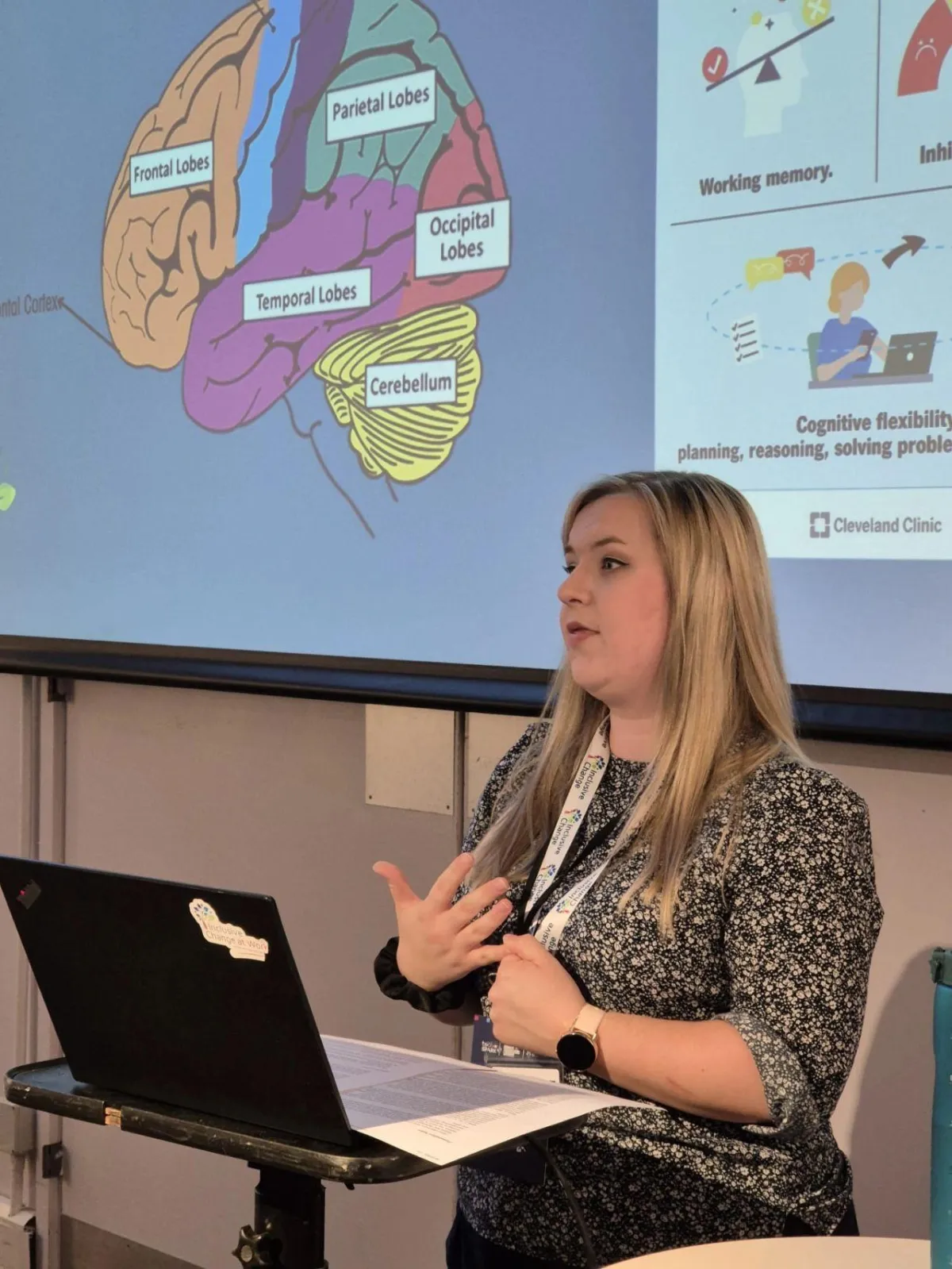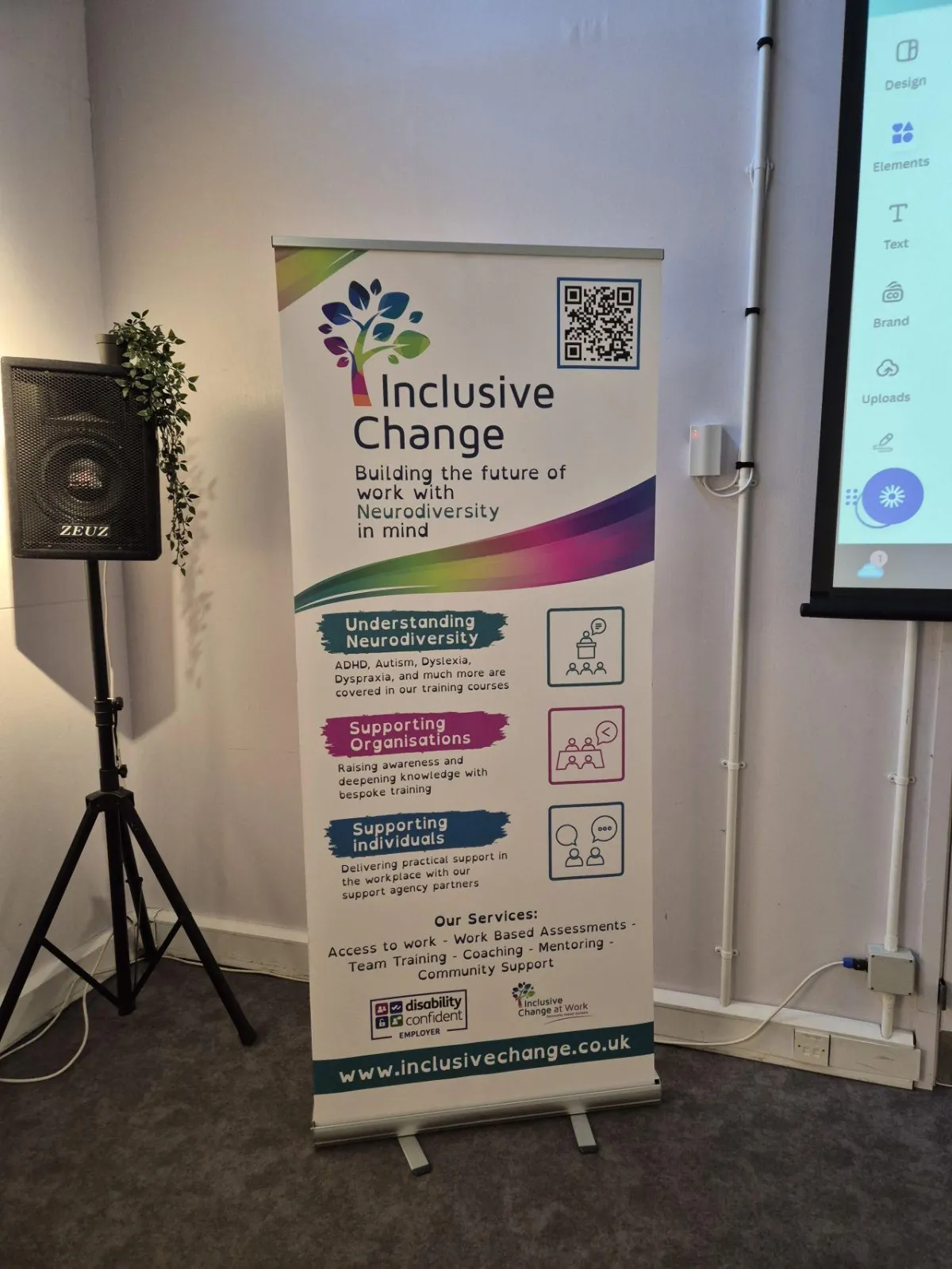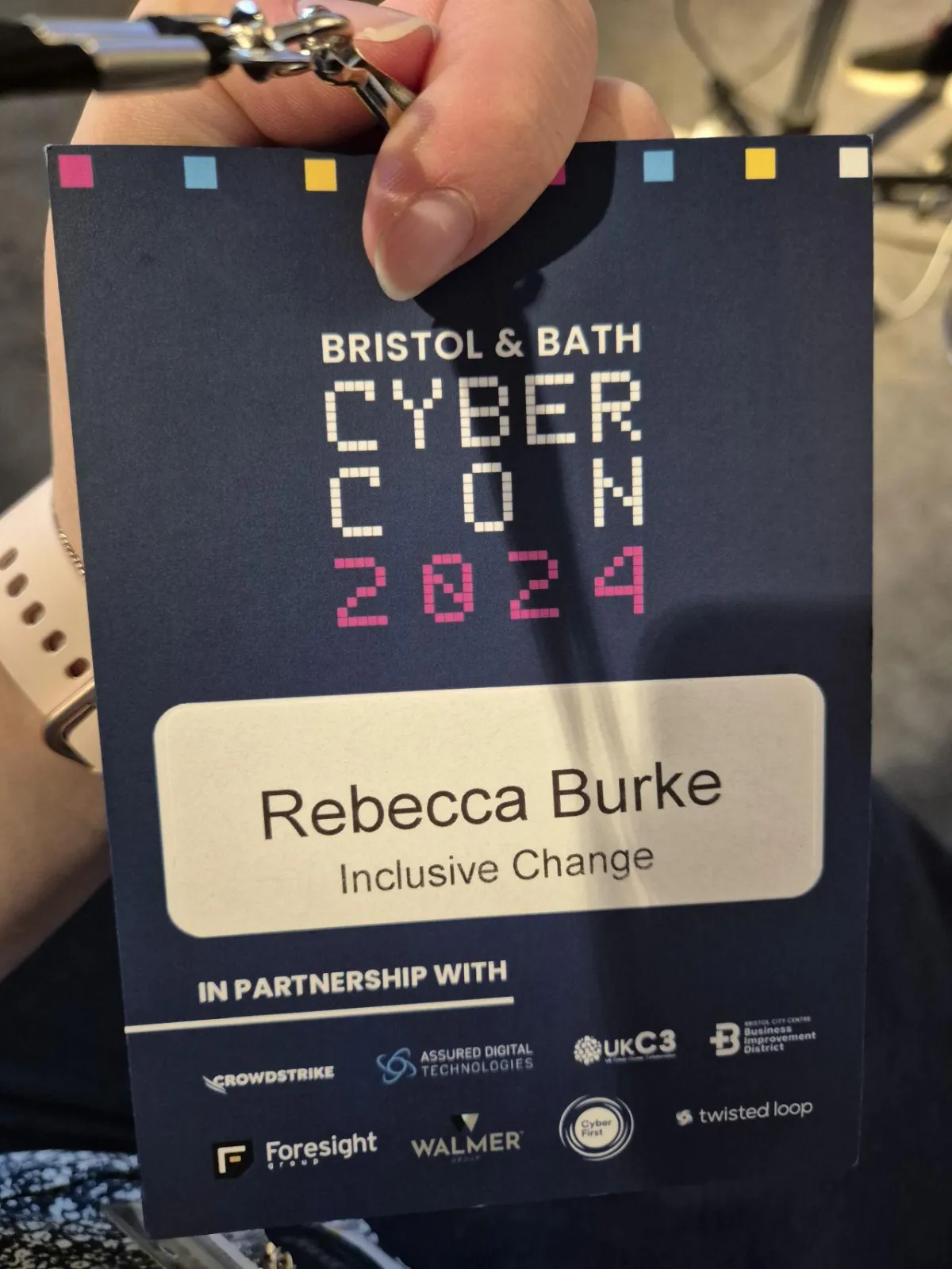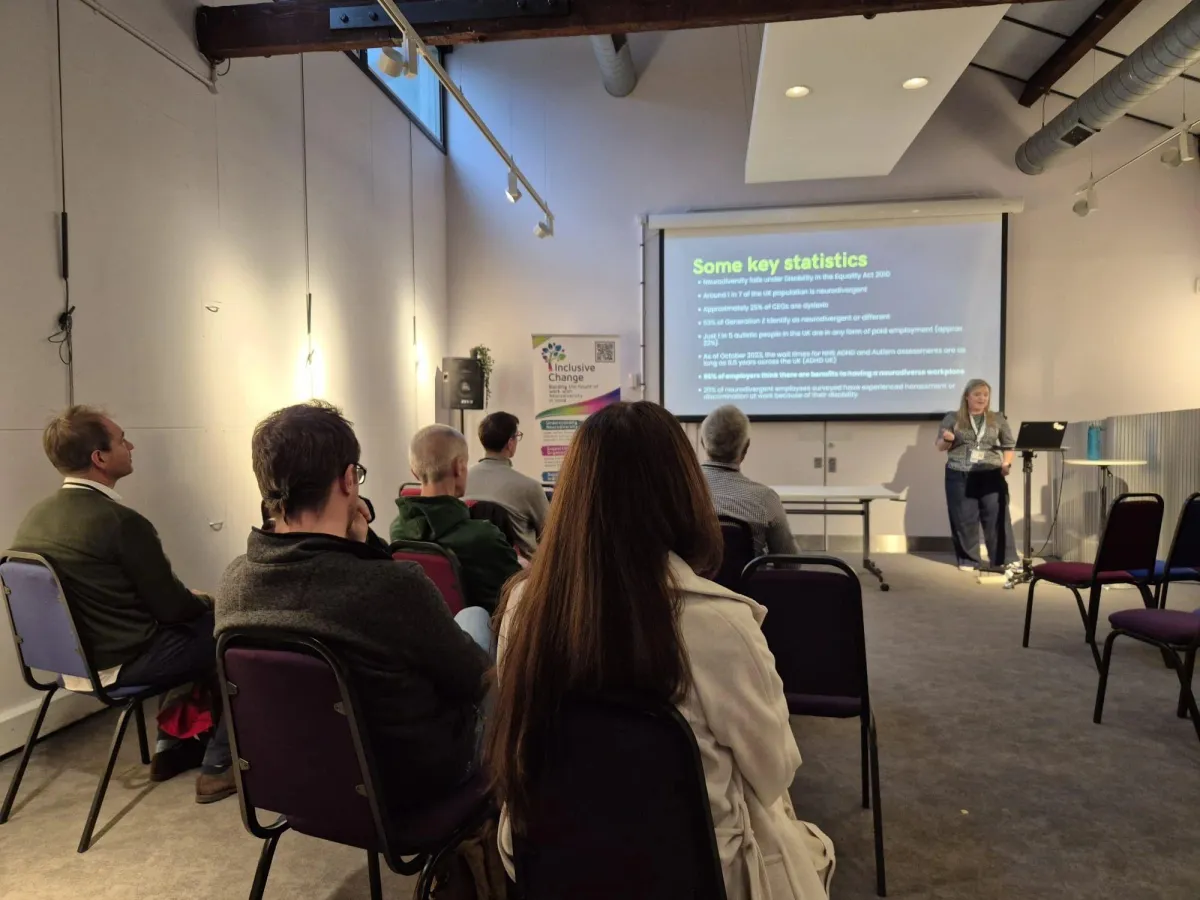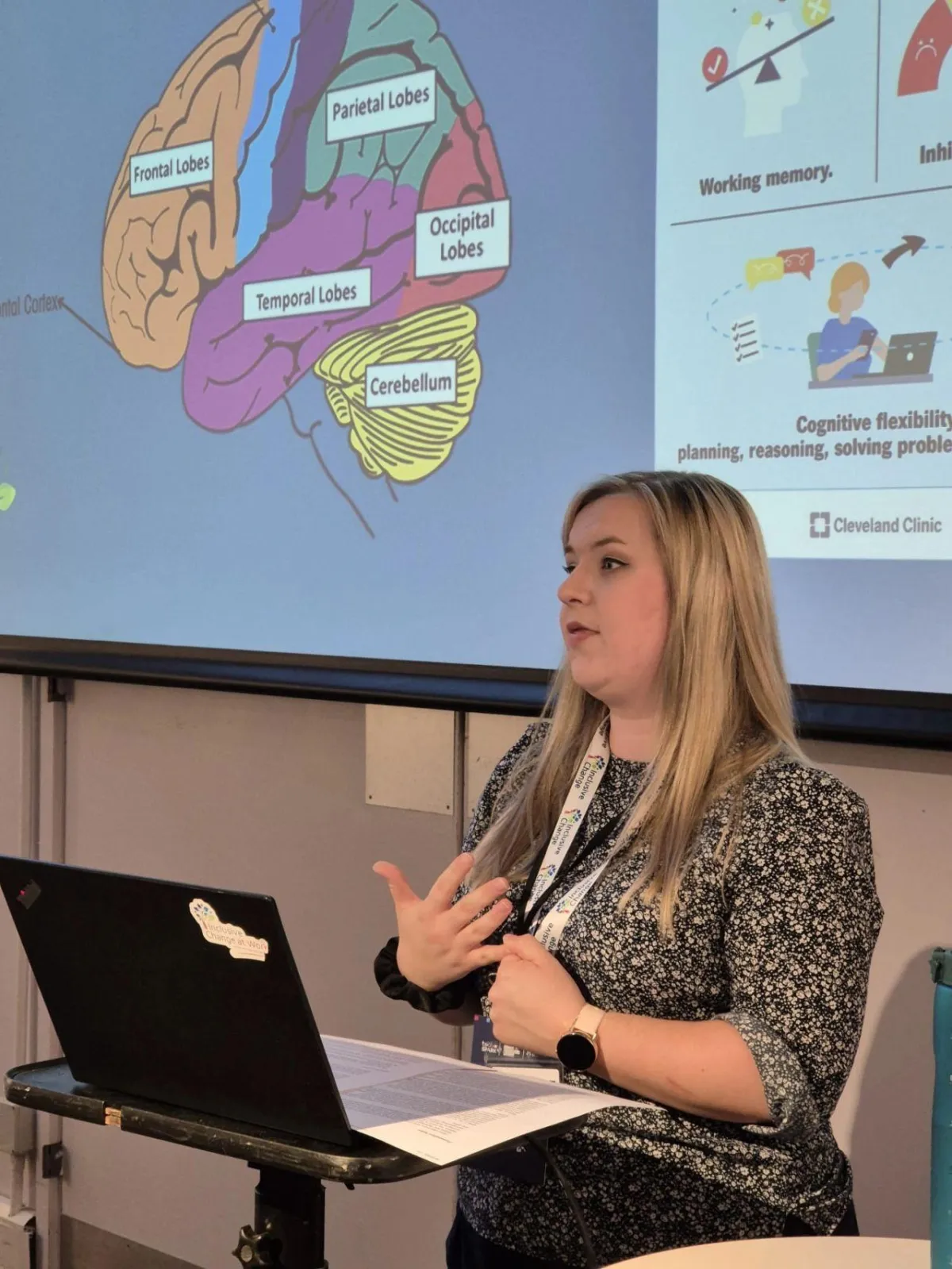
Becca Burke
Speaker
Empowering Neurodiversity in the workplace
Hi, I am Becca!
I'm Becca, a passionate advocate for neurodiversity and understanding ADHD in the workplace. Living with ADHD (combined presentation) myself, I bring a unique blend of professional experiences and personal insights to the conversation about creating inclusive, productive work environments. Equity in the workplace is especially important for us as neurodiverse folk; if given the adjustments and support we need, we can not only survive, but thrive at work.
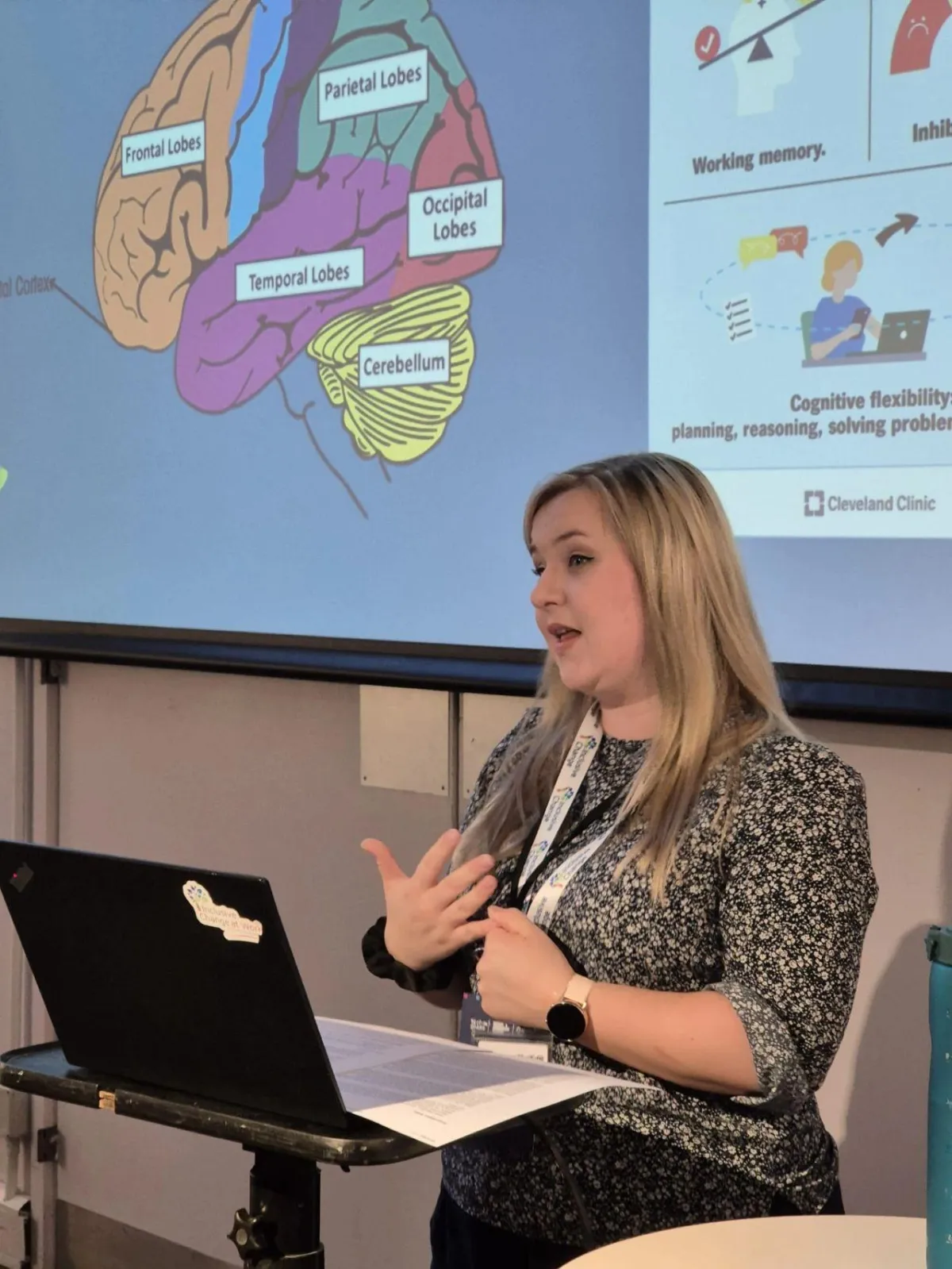
My professional journey
My career path has been varied, in true ADHD style! From my early days in customer relations to roles in sales and account management, I've always excelled in building relationships and understanding people's needs. My time at a FTSE 100 bank gave me a solid foundation for navigating large organisations and the politics of the office environment, and I then had to adapt quickly to the drastic changes of the Covid-19 Pandemic Lockdown. It was during this time, recognising the disruption to my routine, hyperfocusing on work outside of my core hours, and my inability to finish any tasks to completion, that I realised something wasn’t working for my brain.
Throughout my career, I’ve recognised that I was struggling, but never quite understood why. I saw so much of my own journey in the struggles I heard from other neurodiverse people, and I wanted to find a way that I could tangibly make a difference. After my own diagnosis in early 2024, I was inspired to become an ADHD Coach with Leanne Maskell's ADHD Works, and led to me being headhunted for Inclusive Change Ltd as Support Specialist.
My Areas of Expertise
- ADHD awareness and management strategies
- Education and training around ADHD for businesses
- Job coaching neurodivergent clients at work
- Rejection Sensitive Dysphoria awareness/training
- Business process improvement for neurodiverse workforce support
- Working with clients as a neurodiversity educated Virtual Assistant
- Neurodivergent talent recruitment and retention
- ADHD Works Level 1 Coach
Popular Discussion Topics
- Rejection Sensitive Dysphoria (RSD) & ADHD
- ADHD and the menopause
- ADHD screening in prisons
- ADHD and neurodiversity co-occuring traits
- ADHD celebrities
- Current research development
Living with ADHD
- Physiological difference in the brain
- ADHD facts and figures
- Common misconceptions
- Lived experience
- Interactive Q&A
ADHD in the Workplace
- Common challenges and strategies
- Strengths ADHDers bring to the workplace
- Challenges for us in the workplace
- Helpful strategies
- Reasonable Adjustments
- Equality Act 2010 protection
My Speaking Style
I pride myself on being engaging, insightful, and empathetic. My presentations blend personal anecdotes, research-based strategies, and interactive elements that leave audiences both informed and inspired. I like making complex topics accessible, and providing concrete, implementable solutions to common workplace challenges.
Why Choose Me?
At Inclusive Change, we understand your ‘Why,’ and meet you where you are on your journey as a business. Whether you're looking to educate your HR or leadership teams, or provide valuable insights to your entire organisation, I can help. I don’t believe that we as neurodivergent people need to change who we are to succeed; with the right support, education and awareness, we can be ourselves without compromise.
Work with me
Ready to transform your understanding of ADHD in the workplace?
Would you like me to run a workshop for you?
Get in touch using my calendar below.
Read my blog here: https://inclusivechange.co.uk/blog/b/adhd-and-me
Read more
The blog
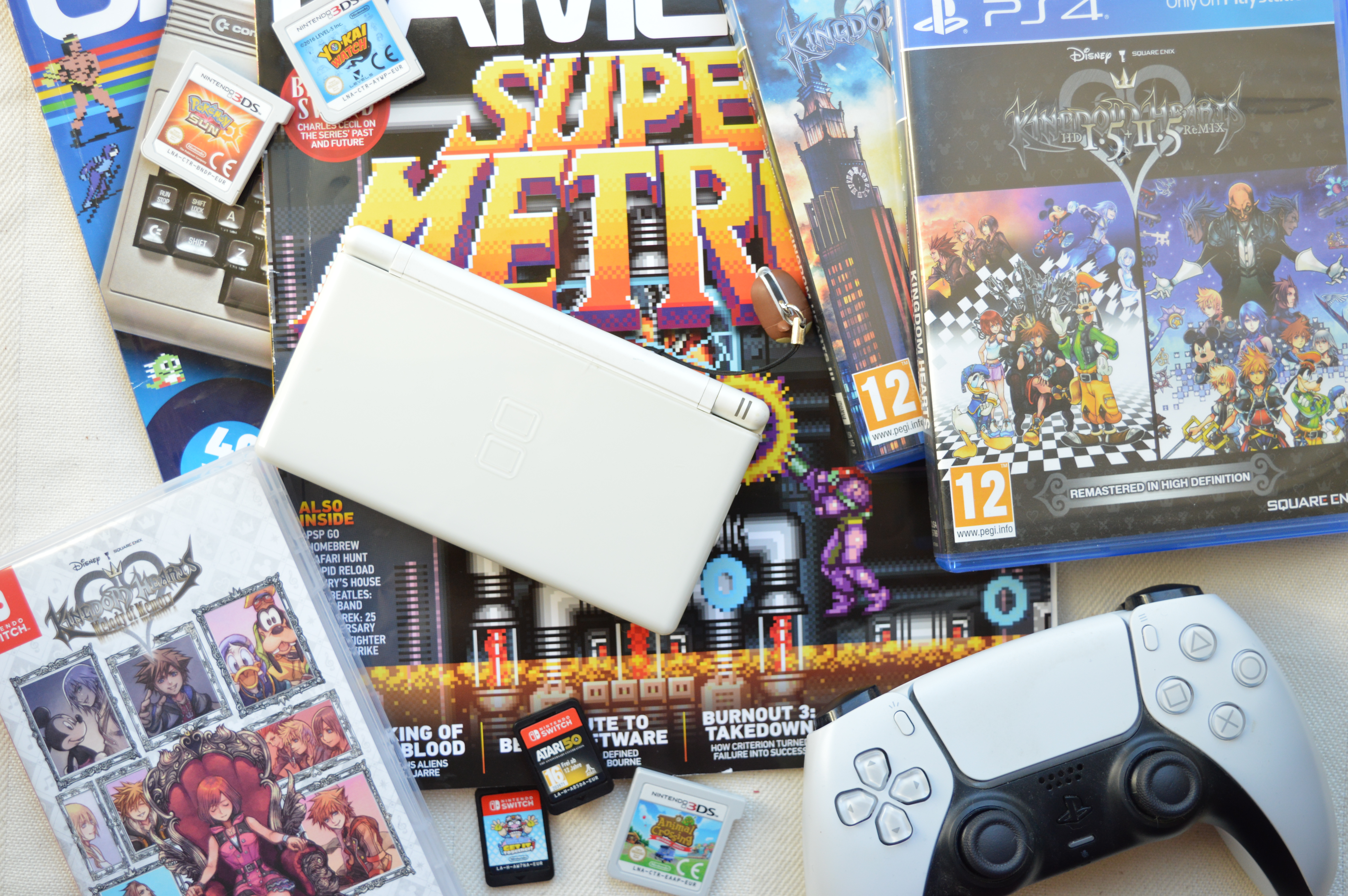
Hyperfixations and Special Interests || What are they, and how do I manage them?
Hyperfixations and special interests. You may have heard these terms thrown about often, but how do they relate to neurodivergence, what do they really mean, and how do they differ from one another?
As an autistic person currently in the midst of another hyperfixation (thanks Kingdom Hearts II!) I feel as though I am as qualified as I can be to discuss my experience on this topic right now.
…And, if I’m being perfectly honest, I just want an excuse to write about my special interests!
What is a ‘Special Interest’?
Special interests are very passionate interests in (often very specific) subjects. But, they differ from regular hobbies in their high intensity. Whilst anyone could realistically have what is known as a ‘special interest,’ it is a term commonly used when discussing autistic individuals.
They tend to last a long time - often spanning many years or even an entire lifetime - and provide ways for us as autistic people to regulate emotions, connect with others and improve our mental health.
What do they mean to me?
Now this is the part I have been waiting for… where I can drone on about my special interests to you unsuspecting readers!
Kidding! I’m not going to subject you to that. But I will include a list of current interests for… contextual reasons…
(definitely not just because I want to talk about them)
My largest special interest is by far Disney - as this has remained a constant throughout my entire life. But, whilst most special interests are known to last a long time, they can also change and evolve as a person grows. In my experience, this has meant that although when I was younger I was most interested in Disney movies and soundtracks, now I prefer to flaunt my knowledge of the theme parks and history.
On top of this, I also enjoy fashion history, American Girl Dolls (kind of linking into that last one!), classic horror movies, Kingdom Hearts, Animal Crossing and, not to be such a cliche, but… the Titanic. Why does that ship have such a grip on autistic people around the world?
Engaging in my special interests gives me a strong sense of fulfilment and joy. More-so than your typical hobby. As in: I want to explode into a puddle of rainbow, glitter and all that is good in the world upon hearing the opening titles of Animal Crossing: New Leaf.
How can they be positive?
As you might be able to guess, special interests can bring a lot of happiness to autistic individuals. They can give us an anchor to grip onto in a chaotic world which isn’t made to meet our needs. But that is not all.
It is significantly harder for autistic people to find and keep employment. But, finding a way to turn a special interest into a job can be a way for us to gain a leg up in the workforce. Having an extended knowledge, interest or passion into a specific subject can be incredibly useful.
Special interests can also help with social connections. As an autistic person, the nuances involved in even the smallest of conversations completely baffles me. We are more likely to find ourselves isolated socially from our peers due to an inability to read or reciprocate social cues on the same level as others. But finding people who are passionate about the same things as you can make it easier to connect with them. Talking about my special interests makes holding conversations much easier: whilst I’m normally a quiet person around others, if anyone so much as mentions Disney World in a conversation with me, I will not let them change the subject no matter how hard they try!
But what is a ‘Hyperfixation’?
I’m sure many Neurodivergent individuals will agree, but hyperfixations are both the bane of my existence and another great source of joy.
Hyperfixations are short-term, extremely intense interests that focus on a particular subject - differing from special interests in their length and higher intensity. This term is more commonly used for people with ADHD, but other neurodivergent people may experience a ‘hyperfixation’ as well.
How do they impact my life?
I don’t have ADHD, so my experience is only coming from the perspective of an autistic person - I’m not going to claim to understand what hyperfixation is like to everyone.
For me, hyperfixations usually revolve around my special interests in some way. As an example: right now, I’m playing through Kingdom Hearts 2, and it has completely taken over at least 80% of my brain space at any given moment. Hyperfixations aren’t just binge-watching a TV show, starting a new hobby or playing a few hours of your favourite video game in the evenings. When I am hyperfixated on something, everything I do that isn’t directly related to my fixation, is almost depressing. I want to eat, sleep, breathe my hyperfixations.
Being unable to engage in hyperfixation makes me antsy and irritable. I might even go into a meltdown because of that.
As you can imagine, this can be a real nuisance. I will struggle to focus on anything that isn’t directly related to what it is that I am fixated on. Sometimes, I can even forgo my own basic needs because I am so invested in something that my body is not signalling that I am hungry, thirsty or tired - and even if it is, I’m not always going to listen!
When partnered with other neurodivergent traits like impulsivity, poor interoception and executive dysfunction, hyper fixations can be borderline dangerous sometimes.
Can hyperfixations ever be positive?
However, it’s not all bad.
Similarly to a special interest, hyperfixations are another source of joy to many neurodivergent individuals. They provide a sense of novelty and excitement to those with ADHD who might crave such things.
A hyperfixation may allow someone to discover a new hobby or passion. The intense focus it creates could also provide useful new skills and knowledge. And, although you are never really able to choose what it is you are fixated on, it is incredibly helpful when it just so happens to align with something productive.
Hyperfixations can be a very positive thing, but it is important to manage them in a way that works for the individual.
What do I do when I have a hyperfixation?
Once again, I think it’s important to mention that I’m diagnosed with autism, not ADHD or any other form of neurodivergence. On top of that, even being autistic doesn’t mean that what I do will work for every other autistic person. Whilst I can give my experience, it is ultimately down to you to figure out what is beneficial for yourself and others - we are all individuals with our own unique needs and challenges.
With that being said: here are a few things that I try to do when I feel myself in a period of hyperfixation…
DON’T IGNORE IT!
This is probably the most important tip I can give you.
It is practically impossible to ignore a hyperfixation. I mean, the word is literally hyper fixation. But, that won’t stop people from trying to fight against it and carry on with their lives completely as usual.
In my case, pushing the feeling aside and trying to ignore it will only cause it to get worse; so, although annoying, it is important to accept the fact that I am hyperfixated on something. I know that my focus isn’t going to be as good as usual, so I have to give myself some grace when going about my day-to-day tasks.
Schedule in time to engage in it without guilt or restrictions.
One of the worst parts about getting older is the feeling that you ‘could always be doing something more productive.’ This means that spending hours hyperfixated on something not directly related with work or productivity can cause me to feel guilty. To combat this, I find it useful to actually schedule in time where I can engage with a hyperfixation without that feeling of shame - guaranteeing that I can do everything I need to do that day whilst also having lots of free time. Furthermore, I also find it useful to ensure that the time scheduled is scattered throughout the day - maybe one session during lunch and another in the evening - so that I don’t drive myself insane during the afternoon!
For me, it has also been extremely helpful to get into the habit of roughly planning out my days regardless of hyperfixations. That way, when my mind is busy thinking about that one topic, I’m already in the routine of planning my day out: making it easier for me to manage my time even when most of my brain space is occupied.
On top of this, if you are/know someone who is likely to forgo basic necessities due to intense hyperfocus - remember to also schedule some time away from a hyperfixation. Set some alarms as a physical reminder to eat, drink and get outside for a break!
Find ways to incorporate it into what you need to do.
Need to clean the kitchen? Listen to a podcast on that particular subject whilst you do it. Busy in the office? Put on the soundtrack for that one series you are obsessed over right now. Getting stuck into your studies? Use any study breaks to engage in that hyperfixation for a short while.
However frustrating it is, life doesn’t stop because I am hyperfixated on something and it isn’t entirely practical to spend the entire day so wrapped up in my own interests that I forget to check my emails, cook or wash up. To combat the feeling of discomfort that comes with doing anything unrelated to a hyperfixation, multi-tasking is very helpful. In fact, as I’m writing this blog post I have a Kingdom Hearts playlist on in the background!
Remember that the intensity will fade or pass.
Don’t make any rash decisions, no matter how enticing….
I know how appealing it can be to shell out loads of money on things directly related to a hyperfixation - but I also know that in time, the intensity of my interest will probably fade (at least for a moment) and I don’t want to have spent shedloads of cash on something that I won’t feel as strongly about in a few weeks.
But, I won’t lie, there are times when my hyper fixation is so strong that I physically cannot do anything else until I have bought a specific item (in the past this has been a particular video game or DLC, DVD or toy). I can now see how annoying that must have been for my parents when I was younger! Do as I say, not as I do...
Hyperfixations can be loads of fun, but it is important to learn how to best manage them in order to avoid causing harm to yourself or your bank account.
SO, both special interests and hyper fixations affect neurodivergent people, but in slightly different ways. Whilst special interests are more long-term, hyper fixations last for shorter amounts of time and tend to be even more intense.
Special interests and hyper fixations can be a great source of joy for neurodivergent individuals and, in a world where things are often harder for us, can even sometimes provide certain advantages within education or employment.
Thank you if you read all of that! If you wish to read more, you can check out my other blog posts on this page, introducing myself.
If you haven’t already, follow me on instagram to keep up with my art and what it is that I am up to:
Obviously I am no expert on this subject, so this post does not cover all aspects of these subjects. If you wish to learn more, I would suggest you do some more research on your own! I only wished to highlight my own experience in these topics as an autistic person.
Sincerely,
Owen @ ScribbleWhiskers
‘Having then gifts differing according to the grace that is given to us, let us use them,'
Romans 12:6
Some of the Companies Inclusive Change Have Worked With So Far


Column Header
Lorem ipsum dolor sit amet consecetuer lorem ipsum
Organically grow the holistic world view of disruptive innovation
At the end of the day, going forward, a new normal that has evolved
Column Header
Lorem ipsum dolor sit amet consecetuer lorem ipsum
Organically grow the holistic world view of disruptive innovation
At the end of the day, going forward, a new normal that has evolved
Column Header
Lorem ipsum dolor sit amet consecetuer lorem ipsum
Organically grow the holistic world view of disruptive innovation
At the end of the day, going forward, a new normal that has evolved
Copyright 2023 - Inclusive Change Ltd
Inclusive Change Ltd
c/o Your Village Shop
Stoke Gifford Retirement Village
Bristol BS16 1YF
UK
Reg no: 12412464
VAT NO: 352 1564 17
ICO Reg: ZB081779
UK Register of Learning Providers: 10090652

